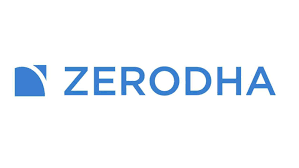Samsung Electronics announced on Friday a significant surge of over 10 times in its first-quarter operating profit, driven by the rebounding prices of semiconductors, which boosted earnings from a low base a year ago during a severe downturn in chip demand.
The world’s largest memory chip and TV maker estimated its operating profit to have risen to a better-than-expected 6.6 trillion won ($4.89 billion) in the quarter ended March 31.
This marked a 931% increase from 640 billion won recorded a year earlier, as stated by the South Korean company in a short preliminary earnings statement. It would also mark Samsung’s highest operating profit since the third quarter of 2022.
While the operating profit estimate surpassed expectations, revenue fell short, likely rising by 11% from the same period a year earlier to 71 trillion won, below a SmartEstimate by LSEG of 72.3 trillion won.
Park Sung-soon, an analyst at Korea Investor Relations Service, commented, “Since revenue was mostly in line but operating profit beat expectations, the inventory valuation of NAND flash chips may have improved. Demand for NAND has improved, which may have improved margins as well. Initial response to new Galaxy S24 smartphones was also positive due to on-device AI, so if a greater-than-expected portion of the high-margin premium smartphones were sold, it would have an impact.”
Samsung’s chip division, its biggest earner, is expected to report its first quarterly profit in five quarters, driven by the rebounding prices of memory chips. DRAM chip prices rose about 20% during the first quarter compared to the previous quarter, while NAND flash chip prices increased by 23% to 28%, according to data provider TrendForce.
The company is set to release detailed earnings on April 30.
Samsung’s mobile business is also expected to have reported a solid profit after launching sales of its new flagship Galaxy S24 smartphones in late January. Analysts estimate that Samsung shipped 57 million smartphones during the quarter, up 8% from the fourth quarter, with the average selling price of Samsung smartphones likely rising by 30% to $340 quarter-on-quarter, supporting profits.
Global sales of Galaxy S24 smartphones devices grew by 8% compared to the previous year’s Galaxy S23 series during their first three weeks of availability, according to data provider Counterpoint.
Samsung shares were down 0.5% in early morning trade versus a 0.4% drop in the wider South Korean market, tracking US market falls after Federal Reserve officials spoke about the need to keep interest rate cuts in check.


